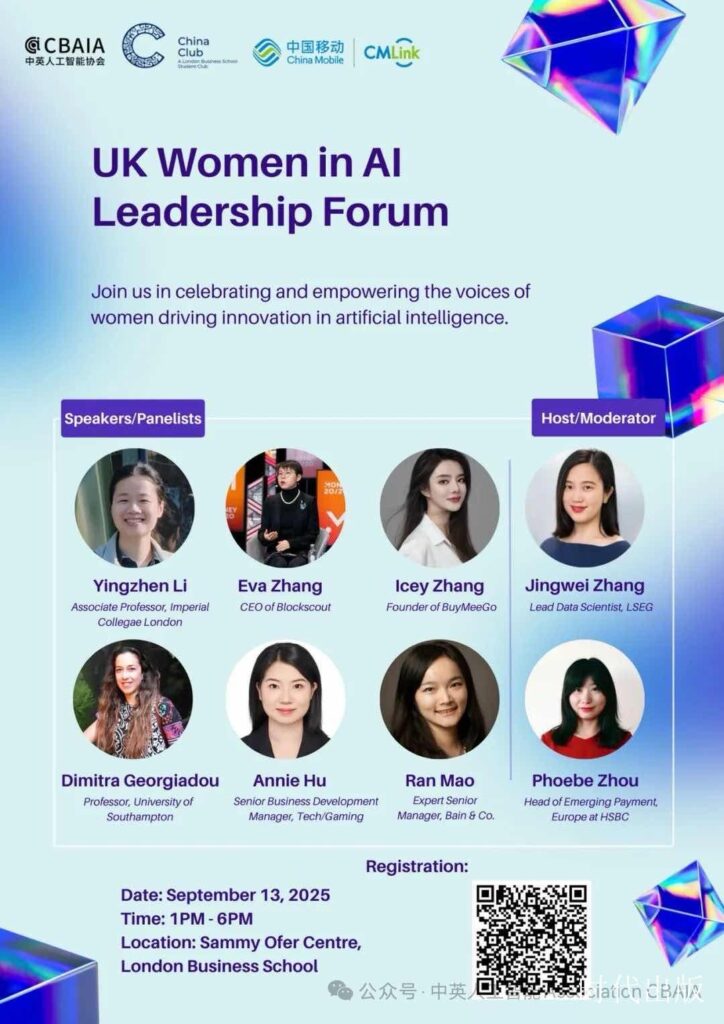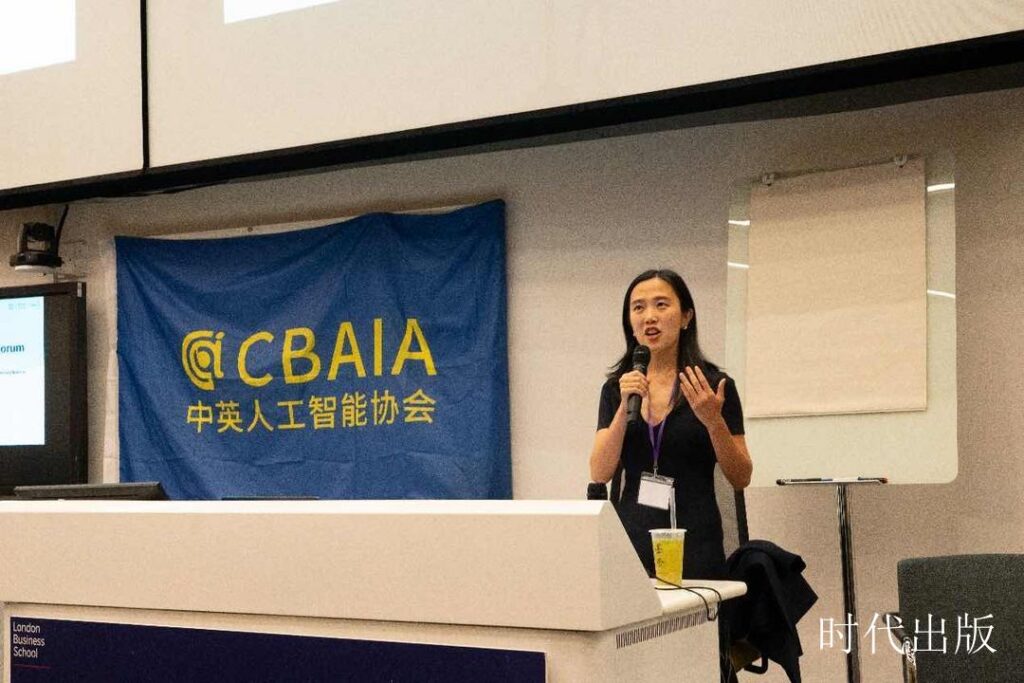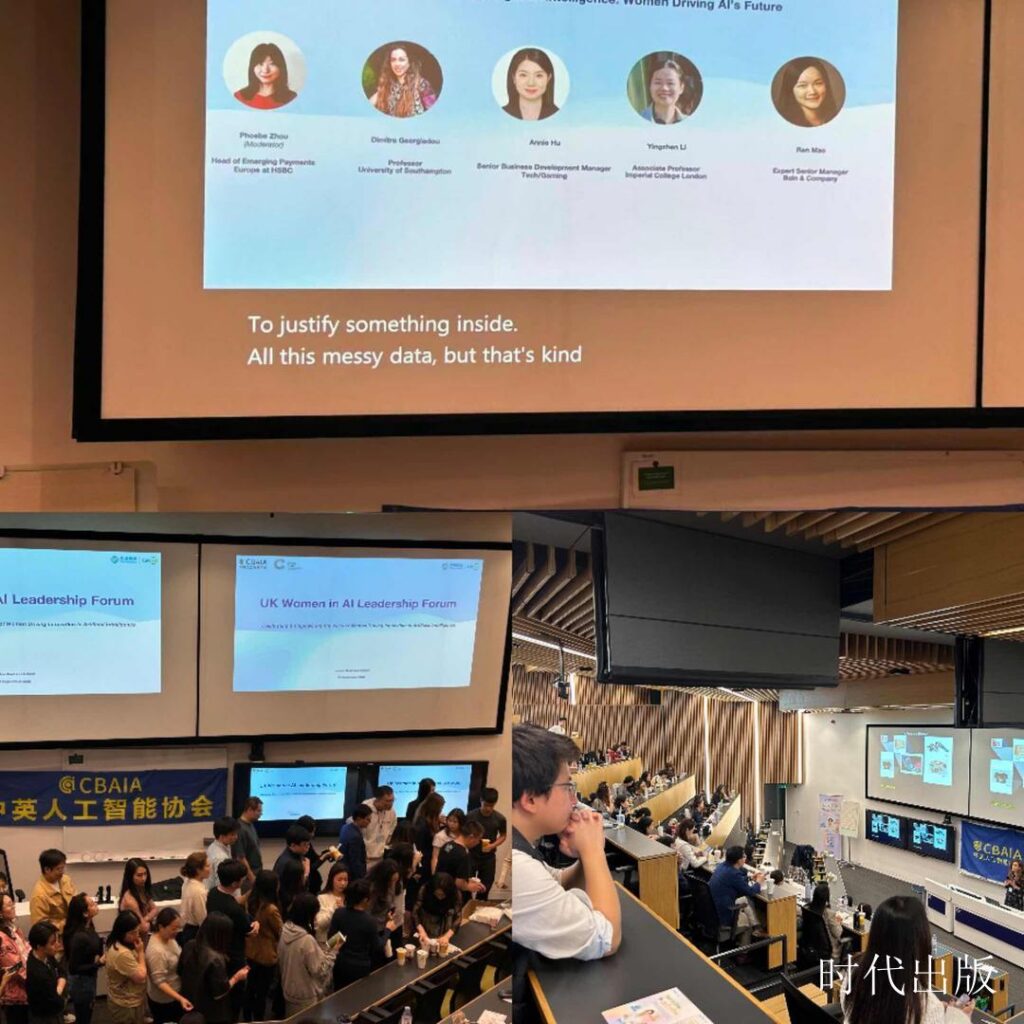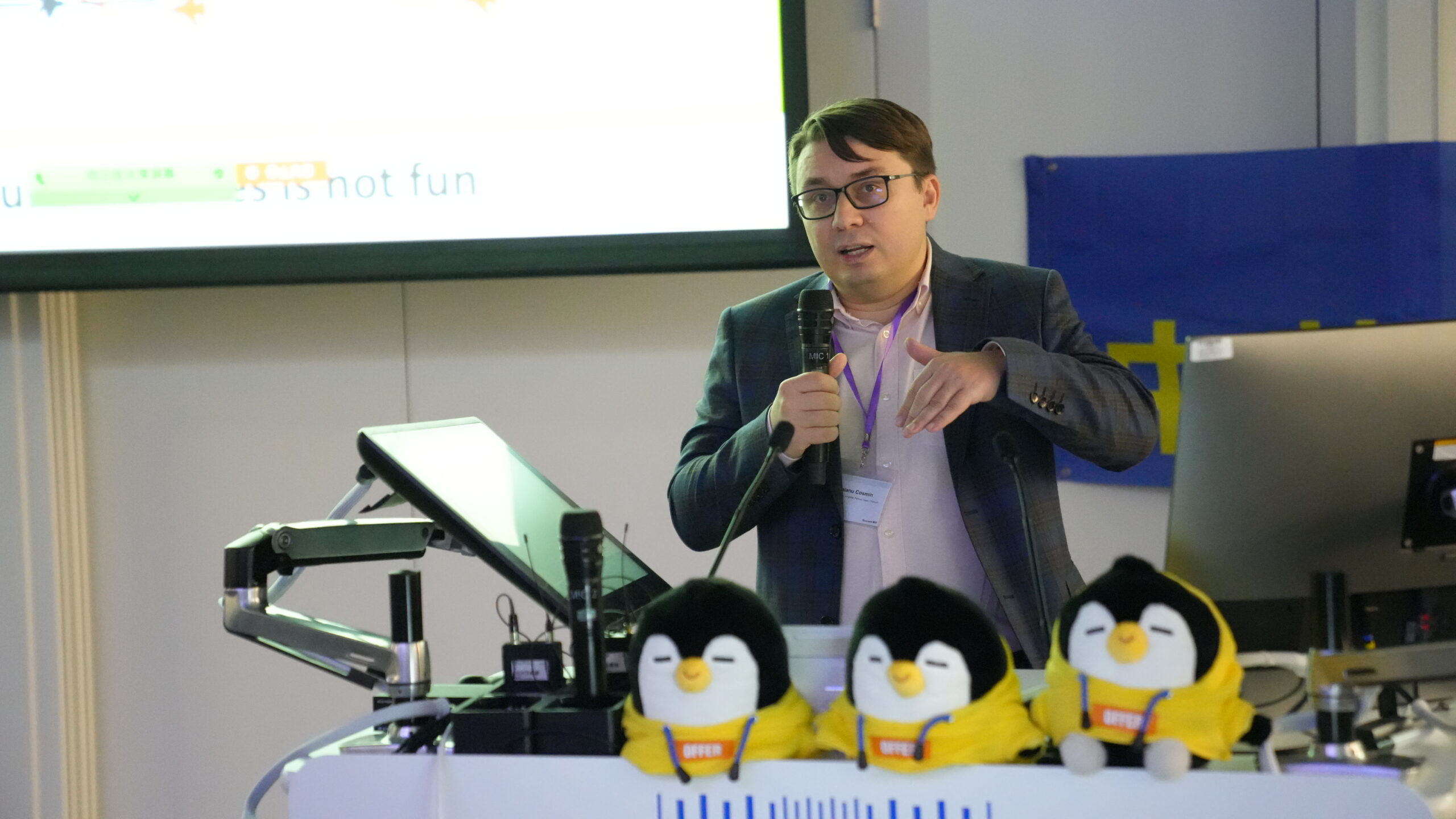Women’s Perspectives in AI: Challenges and Potential
The First UK Women in AI Summit Successfully Concludes
Republished from: Times Publishing
(Reporter: Lu Chen | Editor: Jianping Sun)


The first-ever UK Women in AI Summit, hosted by the China Britain Artificial Intelligence Association (CBAIA), was successfully held at London Business School. This landmark event—the first in the UK to feature all-female hosts, keynote speakers, and roundtable panels—drew over 100 representatives from finance, academia, consulting, entrepreneurship, and technology sectors.
Unlike traditional AI forums, the summit focused on the unique perspectives, advantages, and influence of women in AI.
Summit host Jingwei Zhang, Chief Data Scientist at the London Stock Exchange Group, emphasized that AI is fundamentally reshaping societies and industries. “Women should not only be participants but also leaders and drivers of change,” she stated, calling for collective efforts to build a diverse, balanced, and sustainable AI future.


Keynote Highlights
The summit featured four thematic keynotes exploring the future of AI from multiple angles:
- Dr. Yingzhen Li (Associate Professor, Imperial College London) – Uncertainty in Machine Learning: addressing the challenges of model uncertainty in applied AI.
- Eva Zhang (CEO, Blockscout) – Blockchain and AI: Connecting Blockchain to Reality: highlighting the unique advantages of female entrepreneurs in decentralized ecosystems.
- Icey Zhang (Founder, BuyMeeGo) – The Rise of Women in Internet Entrepreneurship: discussing the growing role of women in digital ventures and encouraging young women to embrace innovation.
- Prof. Dimitra Georgiadou (University of Southampton) – Nano-scale Devices and Materials for Sustainable AI: emphasizing the urgency of “green AI” as hardware energy consumption rises.
Speakers shared their personal journeys in AI and entrepreneurship, stressing the importance of breaking gender bias, ensuring resource equality, and fostering cross-cultural collaboration to unleash innovation potential.
Women in AI: Challenges and Strengths
Despite gradual improvement, women remain underrepresented in AI research and entrepreneurship, with men still dominating foundational fields such as mathematics, statistics, and computer science. Challenges include limited visibility, reduced decision-making power, and the need for resilience in male-dominated environments.
Yet, women bring distinctive advantages:
- Empathy and user insight – enabling sharper understanding of needs and pain points, crucial for user experience and emotional AI.
- Inclusivity and diversity – giving voice to underrepresented groups, driving balance in teams and society.
- Attention to detail in data – improving quality in data collection, modeling, and product design.
- Resilience and self-motivation – sustaining progress in high-pressure, innovation-driven contexts.
Without women’s perspectives, AI models risk overlooking female needs. Women play a critical role in balancing datasets, correcting bias, and ensuring inclusivity in AI systems.

Strengthening Leadership and Influence
Panelists and speakers proposed strategies to empower women in AI:
- Breaking psychological barriers – challenging the mindset that “what men can do, women cannot.”
- Expanding networks – through academic conferences, industry events, and thought leadership.
- Taking on leadership roles – not only in research but also in conference design, forum moderation, and strategic decision-making.
Experts unanimously affirmed that women bring indispensable insights to AI development, especially by prioritizing sustainability, social responsibility, and diversity in both technical breakthroughs and real-world applications.
Looking Forward
CBAIA emphasized that the summit demonstrates women’s leadership and creativity in AI, while providing an inclusive and forward-looking platform for exchange. The association reaffirmed its commitment to fostering AI collaboration across industries, nationalities, genders, and backgrounds, with the goal of shaping an open, diverse, and sustainable global innovation ecosystem.













